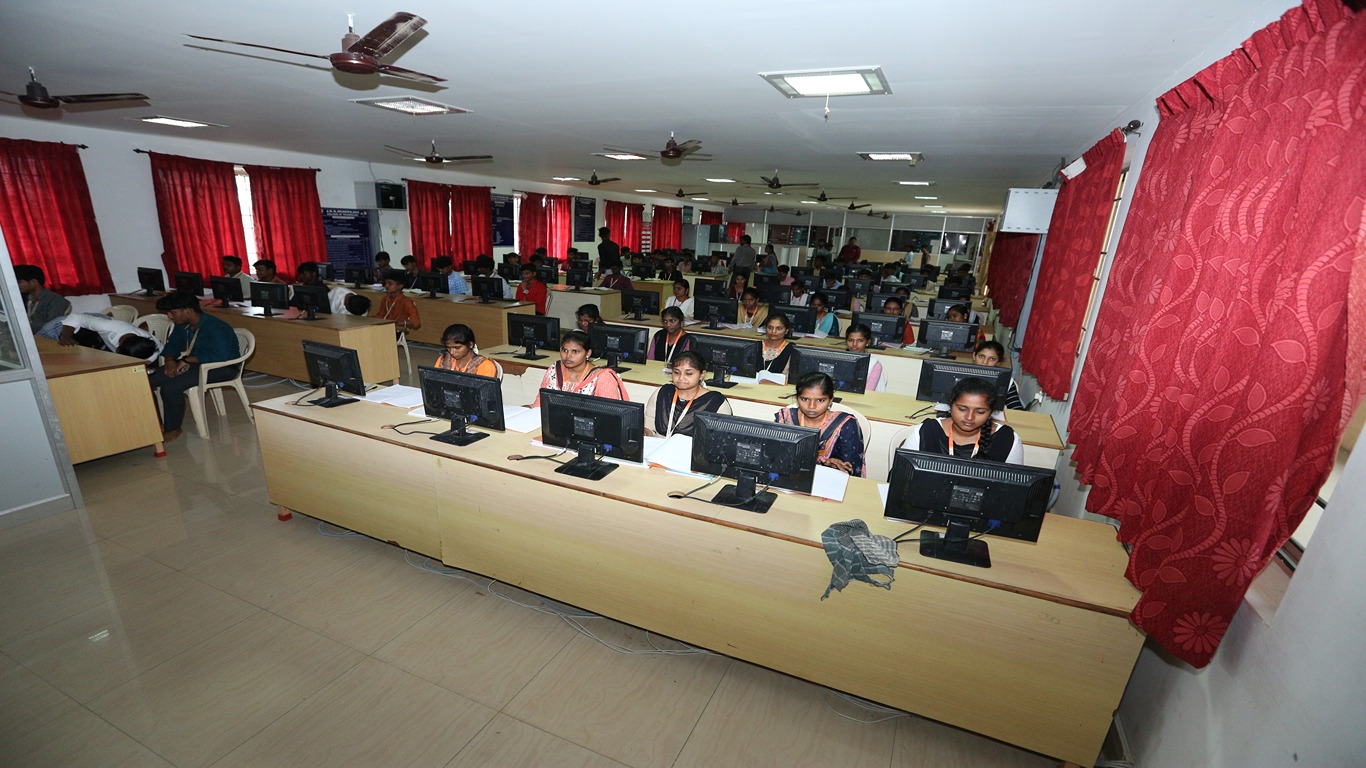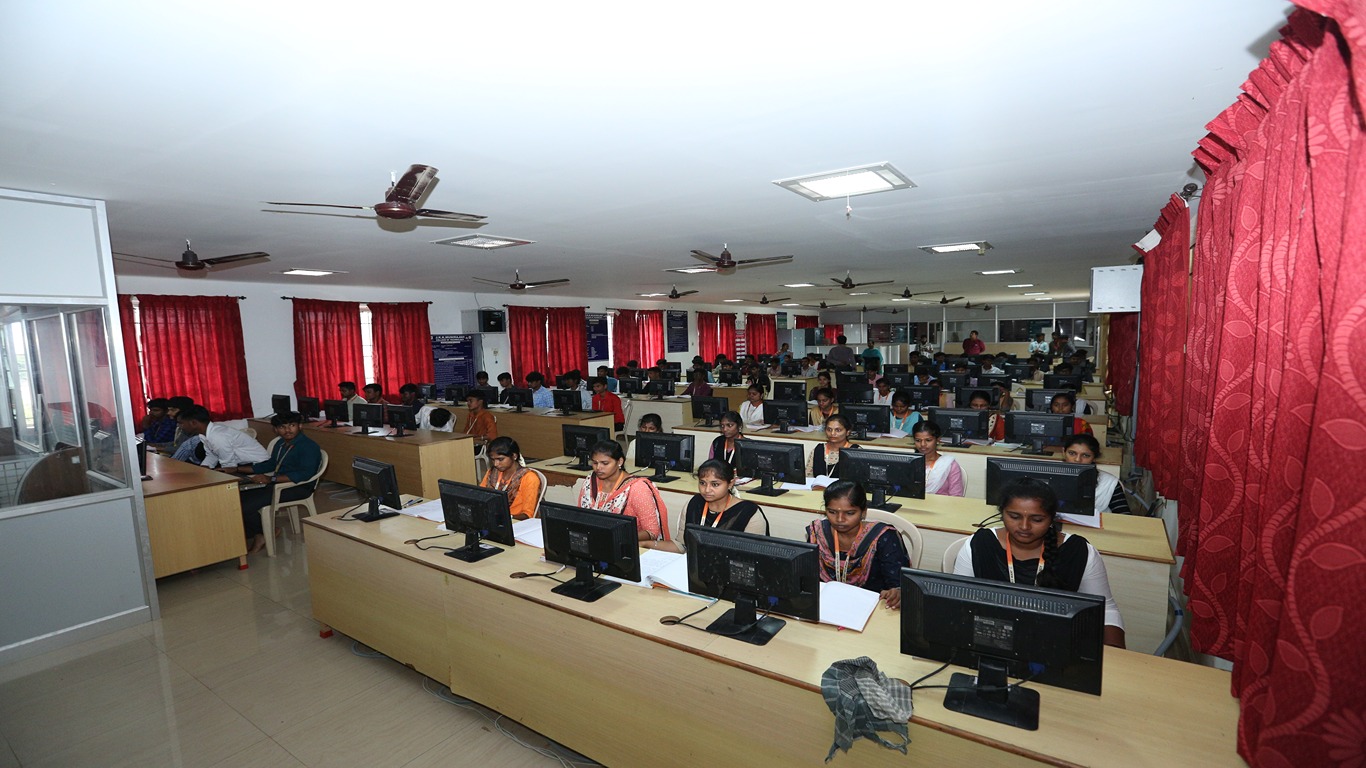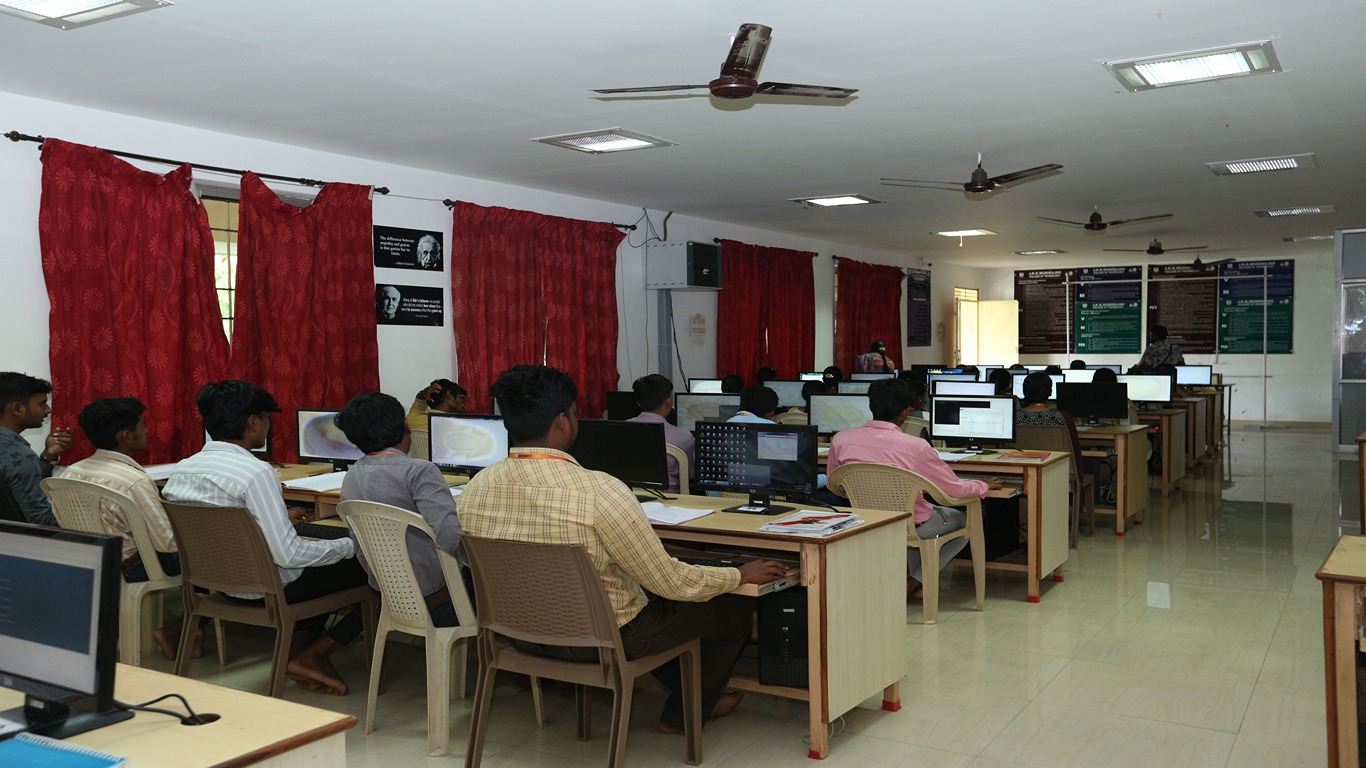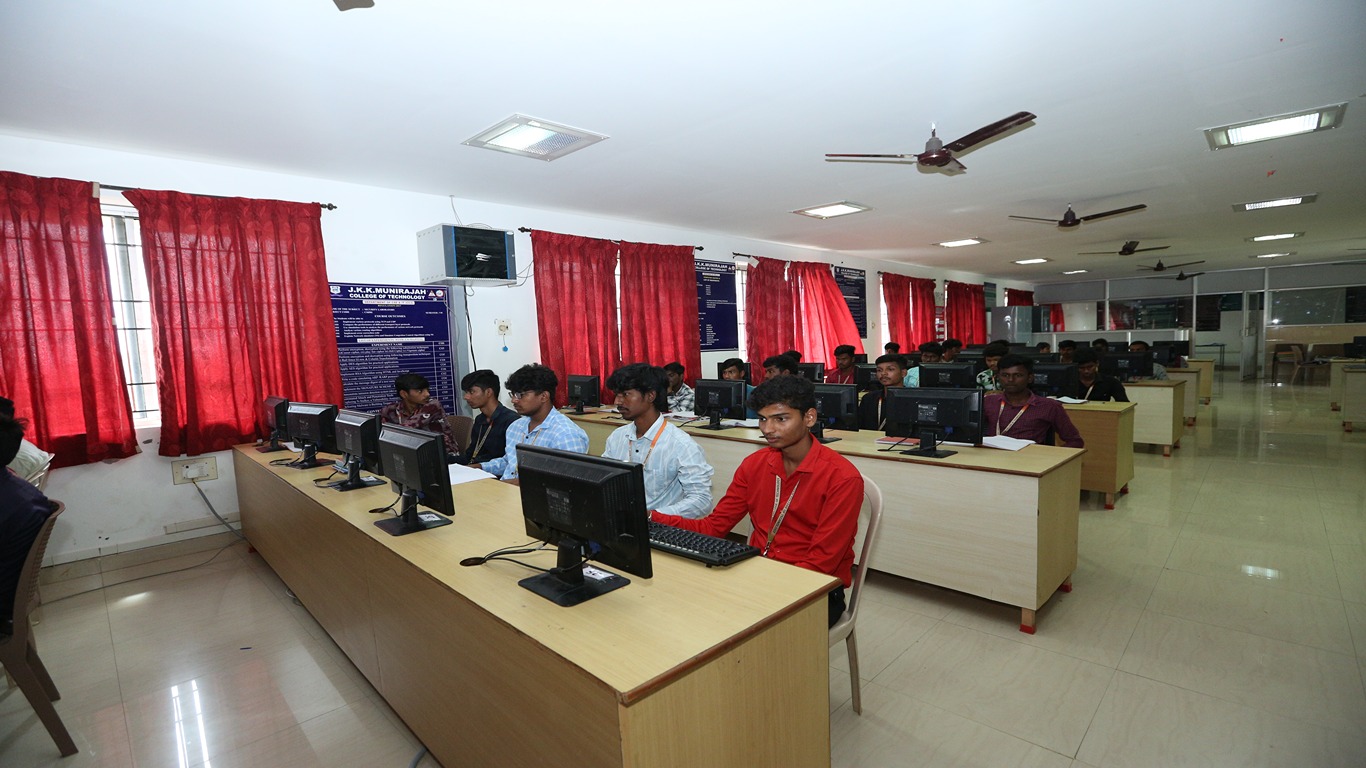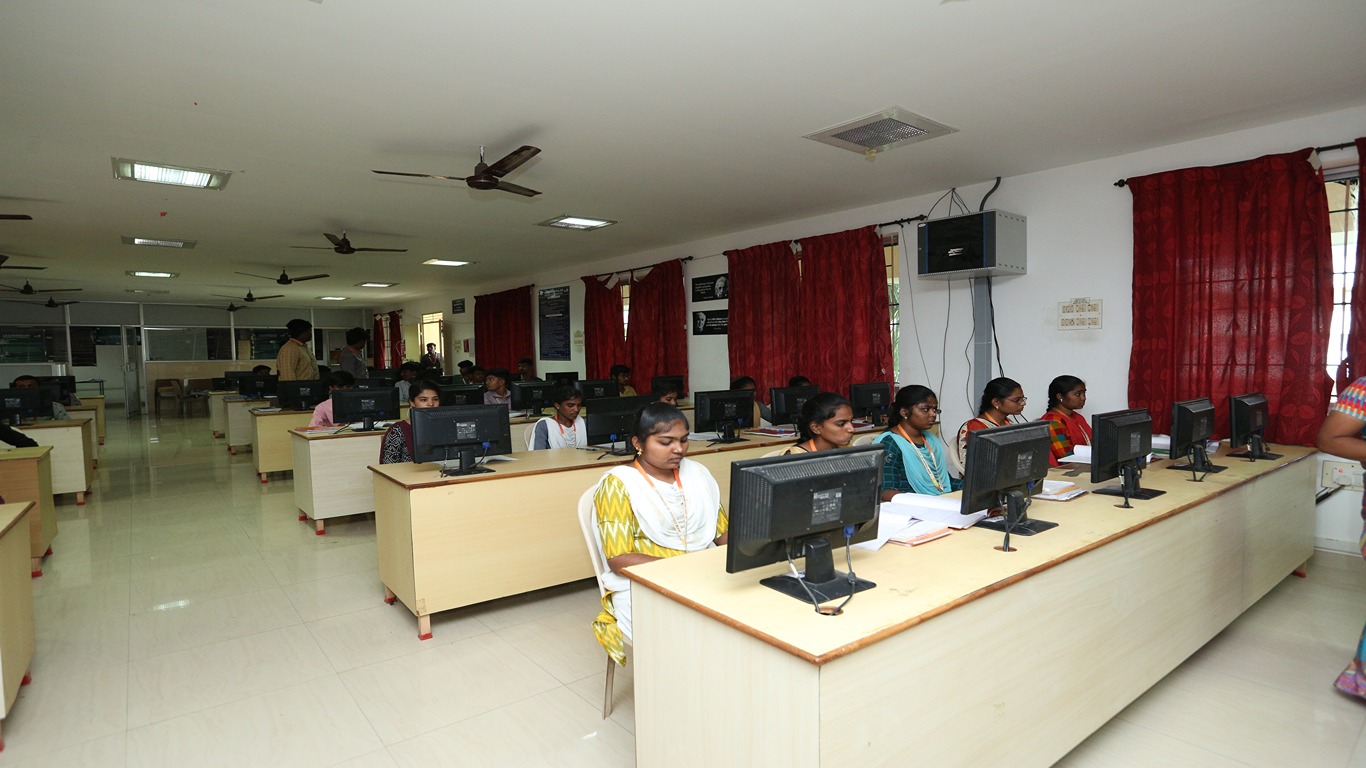Information Technology
What is IT?
BTech Information Technology is the study of computer-based systems and deals with both hardware as well as software components of a computer system.
Why should I study IT?
B Tech IT graduates have a variety of job options available, allowing them to succeed on a variety of platforms. They may apply for numerous employers in the country's IT sector. These companies provide a fantastic environment for students to develop their skills.
Current Year Intake: 90 Seats
Vision
To attain a distinct identity for the institution through technological innovations, knowledge creation and dissemination for the benefits of the society.
Mission
i. Learn the advancement of computer science, computer engineering, information technology and cyber security through internationally recognized research and education, as well as technology transfer.
ii. Prepare students for full and ethical participation in a diverse society and encourage lifelong learning.
iii. Educate students in the best practices of the field as well as integrate the latest research into the curriculum.
iv. Foster the development of problem solving and communication skills as an integral component of the profession.
v. Provide quality learning experiences through effective classroom practices, active learning styles of teaching and opportunities for meaningful interactions between students and faculty.
PROGRAMME EDUCATIONAL OBJECTIVES (PEOs):
-
To Educate and train students in professional career by acquiring knowledge in scientific, mathematics and computing and engineering principles.
-
Apply Analysis, Design, Optimization and Implementation skills in order to formulate and solve Computer Science, Engineering and Multidisciplinary problems.
-
Use their skills in ethical & professional manner to raise the satisfaction level of stakeholders and to take up higher studies, research & development and other creative efforts in science & technology.
PROGRAMME SPECIFIC OUTCOMES (PSOs):
-
PRODUCTS DEVELOPMENT: Ability to apply mathematical methodologies to solve computation task, model real world problem using appropriate data structure and suitable algorithm.
-
DESIGN THINKING: Ability to use knowledge in various domains to identify research gaps and solve complex problems, using latest hardware and software tools, along with analytical skills to arrive cost effective and appropriate solutions.
PROGRAM OUTCOMES (POs):
- Engineering Knowledge: Apply the knowledge of mathematics, science, engineering fundamentals, and an engineering specialization to the solution of complex engineering problems.
- Problem Analysis: Identify, formulate, review research literature, and analyze complex engineering problems reaching substantiated conclusions using first principles of mathematics, natural sciences, and engineering sciences.
- Design / Development of Solutions: Design solutions for complex engineering problems and design system components or processes that meet the specified needs with appropriate consideration for the public health and safety, and the cultural, societal, and environmental considerations.
- Conduct Investigations of Complex Problems: Use research-based knowledge and research methods including design of experiments, analysis and interpretation of data, and synthesis of the information to provide valid conclusions.
- Modern Tool Usage: Create, select, and apply appropriate techniques, resources, and modern engineering and IT tools including prediction and modeling to complex engineering activities with an understanding of the limitations.
- The Engineer and Society: Apply reasoning informed by the contextual knowledge to assess societal, health, safety, legal and cultural issues and the consequent responsibilities relevant to the professional engineering practice.
- Environment and Sustainability: Understand the impact of the professional engineering solutions in societal and environmental contexts, and demonstrate the knowledge of, and need for sustainable development.
- Ethics: Apply ethical principles and commit to professional ethics and responsibilities and norms of the engineering practice.
- Individual and Team Work: Function effectively as an individual, and as a member or leader in diverse teams, and in multidisciplinary settings.
- Communication: Communicate effectively on complex engineering activities with the engineering community and with society at large, such as, being able to comprehend and write effective reports and design documentation, make effective presentations, and give and receive clear instructions.
- Project Management and Finance: Demonstrate knowledge and understanding of the engineering and management principles and apply these to one’s own work, as a member and leader in a team, to manage projects and in multidisciplinary environments.
- Life-Long Learning: Recognize the need for, and have the preparation and ability to engage in independent and lifelong learning in the broadest context of technological change.
| S.No. | Faculty Name | Qualification & Dept. | Designation | Experience |
|---|---|---|---|---|
| 1 | Mrs.NIVETHINI D | M.E., / IT | ASSISTANT PROFESSOR | 3 Years |
| 2 | Mr.SAMBATHKUMAR A | M.E., / IT | ASSISTANT PROFESSOR | 8 Years |
| 3 | Ms.KANIMOZHI S | M.E., / IT | ASSISTANT PROFESSOR | 7 Years |
| 4 | Mr.SUDHAKAR S | M.E., / IT | ASSISTANT PROFESSOR | 5 Years |
| 5 | Ms.KAVITHA R | M.E., / IT | ASSISTANT PROFESSOR | 2 Years |
| 6 | Ms.VIKNESHWARA K R | M.E., / IT | ASSISTANT PROFESSOR | 2 Years |
| 7 | Mrs.PRIYA S | M.E., / IT | ASSISTANT PROFESSOR | 1 Year |
| 8 | Mr.KALAIVENDHAN K | M.E., / IT | ASSISTANT PROFESSOR | 1 Year |
| 9 | Mr.SANGEETHKUMAR P | M.E., / IT | ASSISTANT PROFESSOR | 1 Year |

